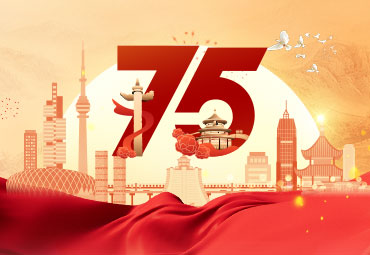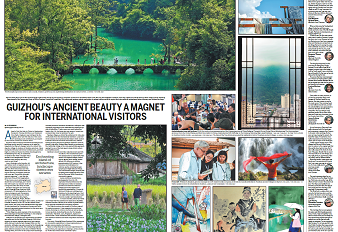Guizhou, South Korea promote tea cultural exchange

A tea ceremony is held during an international tea symposium between China and South Korea in Guiyang on Nov 29. [Photo/colorful Guizhou network]
An international tea symposium between China and South Korea was held in Guiyang, capital of Southwest China's Guizhou province, on Nov 29.
Cultural scholars from tea organizations, research and academic institutes, and companies from South Korea and Guizhou gathered to discuss tea history and culture, delivering speeches themed around the development of Guiyang tea culture, the history of tea cultural exchange between China and South Korea, ethnic groups' folk customs related to tea.
Choi Seok-hwan, president of the South Korea International SUNCHA Research Association, expressed gratitude to Guiyang for providing this opportunity, and hoped this exchange would serve as a new starting point for spreading Korean tea culture worldwide.
In the tea art exchange part, participants were treated to demonstrations of Korean tea brewing techniques, Chinese tea art, and the tea art of the Bouyei ethnic group in Guizhou.

Performers showcase the etiquette of the Bouyei ethnic group's tea ceremony to participants from South Korea. [Photo/colorful Guizhou network]
The symposium also released the "Guiyang Tea Culture Declaration" which proposes exploring and utilizing tea cultural and historical resources, in-depth research on tea culture, promoting tea culture exchange, and advancing society and tea industry development.
Guizhou is the only tea-growing region in China with high altitude, low latitude, few hours of sunshine, and suitable conditions for tea cultivation. It has developed five major tea industrial clusters for different types of tea. As of now, the tea plantation area in the province covers 4,667 square kilometers, ranking first in the country for several consecutive years, with 3.22 million involved in the tea industry.
As early as the 7th century AD, South Korea began accepting and importing Chinese tea culture, and the tea-drinking trend became popular among the people, forming its own unique Korean tea ceremony. May 25th is celebrated as Korean Tea Day, with tea culture festivals held annually.
京ICP备13028878号-8







 Overview
Overview
 Guiyang
Guiyang
 Guian New Area
Guian New Area
 Liupanshui
Liupanshui
 Anshun
Anshun
 Qianxinan
Qianxinan
 Qiandongnan
Qiandongnan
 Qiannan
Qiannan
 Zunyi
Zunyi
 Tongren
Tongren
 Bijie
Bijie
 75 years on: Guizhou's great leap to prosperity
75 years on: Guizhou's great leap to prosperity
 China (Guizhou) Intl Alcoholic Beverages Expo
China (Guizhou) Intl Alcoholic Beverages Expo
 China Life Tips: Unlocking mobile payments
China Life Tips: Unlocking mobile payments


